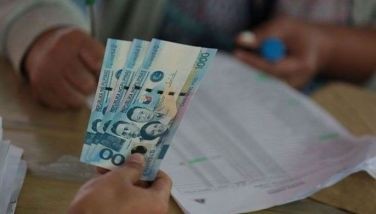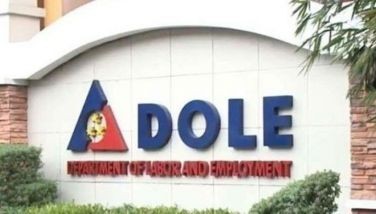10 urban areas considered for 60 million euro grant from EU
CEBU, Philippines — Ten highly urbanized areas in the country are being considered to be part of the 60-million euro Green Economy Program in the Philippines (GEPP) to be funded by the European Union.
The program is aimed at improving circular economy and climate change mitigation measures, Environment Secretary Maria Antonia Yulo-Loyzaga said on Wednesday.
Unfortunately none from Cebu was included in the 10 local government units chosen as beneficiaries of the program.
The LGU beneficiaries include Baguio City, Pasig City, Quezon City, Caloocan City, Davao, Ormoc, the Island Garden City of Samal, Metro Iloilo, the islands of Palawan, and Siargao.
"Perhaps to just point out that under consideration of this grant would be the involvement of the local government," Loyzaga said at a press briefing at Malacañang, referring to the Joint Declaration on the Green Economy Program she and EU Ambassador Luc Veron, head of the delegation of the European Union to the Philippines, signed on Monday.
The GEPP was signed during European Commission President Ursula von der Leyen's visit to Malacañang.
"We have identified about 10 LGUs that could potentially be part of this program for improving their circular economy locally and of course climate change mitigation because of the control of the methane releases from the management of the solid waste landfills," Loyzaga said.
She said the LGUs were considered as "they are the frontlines of our solid waste management efforts in the country."
The official, however, clarified they are still finalizing the details of the projects.
"The details of which still have to be worked out and defended at the NEDA-ICC. So, we’re in the process of actually putting the necessary documentation together," Loyzaga said, referring to the National Economic and Development Authority-Investment Coordination Committee.
The GEPP, she said, would improve the country's solid waste management, among others.
"We would like to move towards a more sustainable production and consumption of materials in our country," she said.
"So this sustainable production consumption really has to do with the way we generate our products and how we also manage the waste that is part of degeneration of the products particularly our plastic wastes," the official added.
Loyzaga said plastic wastes could be "repurposed" and contribute to the Philippine economy each year.
"And that value associated with the 70 percent material value of the plastics can generate, by calculation of the World Bank, about $790 to $890 million per year," she said. — Helen M. Flores, Philippine Star News Service, FPL (FREEMAN)
- Latest






















